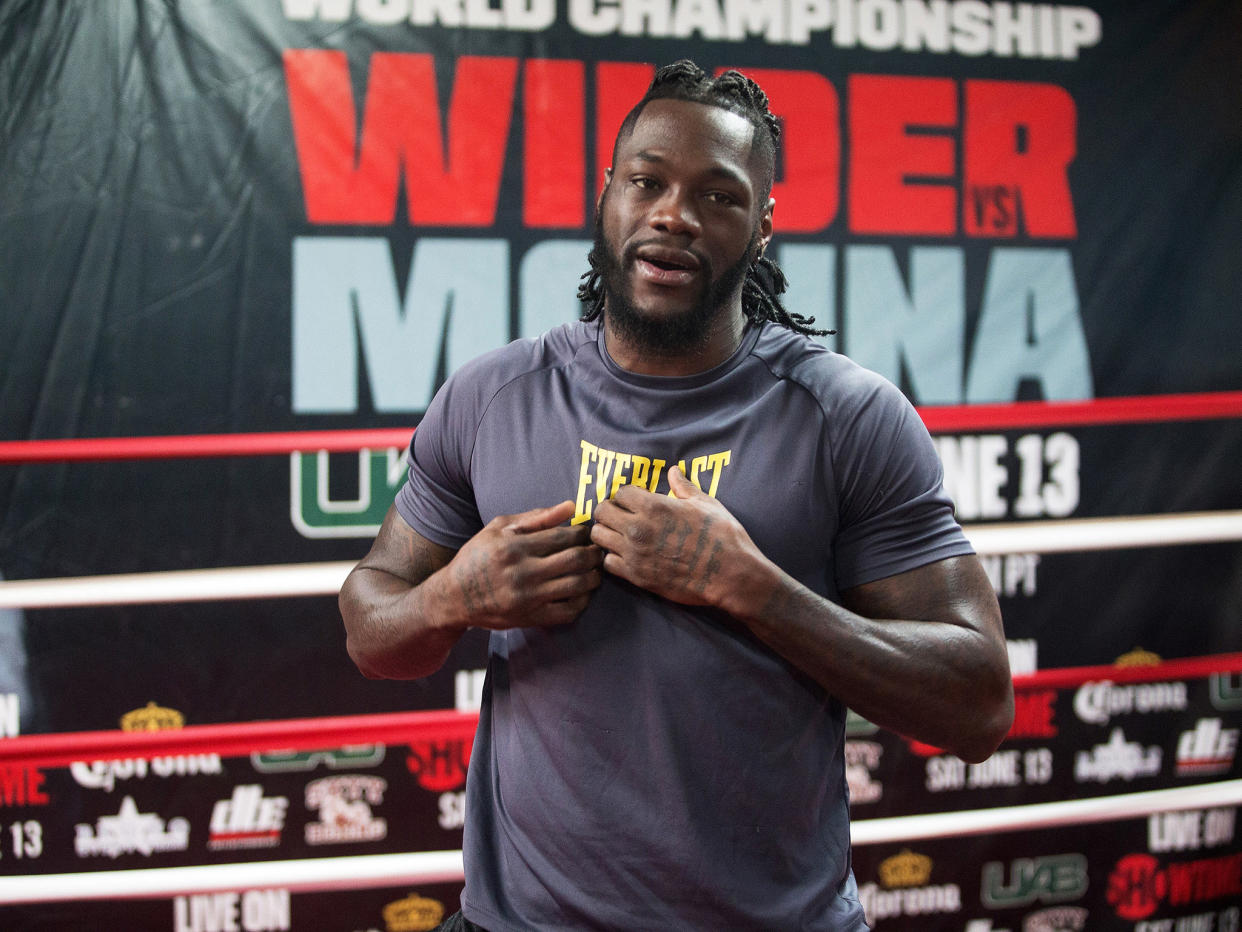Proliferation of title fights leaves heavyweight boxing in danger of another lost generation

The first lost generation of heavyweight champions were brilliant, desperate and most finished destitute after slugging their way through boxing's wild years.
The dark and often comic period started with the shell of Muhammad Ali losing to Leon Spinks, and finished with Mike Tyson's pure spell of genuine greatness. In the middle, filling the years between 1978 and 1986, 14 other fighters held versions of the world heavyweight title and took part in over 40 championship fights.
This Saturday in Alabama the current WBC heavyweight champion, Deontay Wilder, is in his sixth world title fight in two years. There are two other heavyweight title fights scheduled for April and the inability of the WBA to recognise the stupidity in their preposterous system of having three world champions at each weight means that the total for 2017 could reach 15 or more. In the Sixties and Seventies there was seldom more than one each year.
As a historical comparison George Foreman only had four world title fights in the Seventies, a decade defined by images of Big George scowling at dawn in Africa against Ali and looking just the legal side of a killer one day in Jamaica against Joe Frazier.
Wilder, incidentally, is an entertaining fighter with 37 wins, no defeats and 36 of his fights have finished quick. On Saturday he meets unbeaten Gerald Washington in a perfectly respectable title fight; it is a fight direct from the history books of 1983 or 1984 but without the cocaine and crack backdrop that ruined so many of the lost generation's first champions.
There is a sad list of the fallen from the late Seventies and early Eighties with four heavyweight world champions already in early graves, unmarked and forgotten. The toll for the living has been as treacherous with 15 of the 17 champions from the time scarred deep by recreational drugs and the occupational hazards of success. In the Nineties, with their temporary riches and fighting skills eroded, as many as five or six champions filled the halls at big fights in Las Vegas talking of comebacks and accusing everybody of stealing their dreams, as Mike Dokes told me one day. Dokes was one of the WBA champions, a fantastic fighter plagued by a stupendous crack habit and casual addiction to violence away from the ring. Dokes died in 2012, age 54, a felon, addict and founder member of the lost generation.
Heavyweight world champions John Tate, Trevor Berbick and Greg Page all died violently after torrid days at the end of their careers; they were all younger than Dokes. Most of the survivors have to battle now for an obscure living, driving a school bus like Leon Spinks or waiting for a tiny handout at the end of a night on the talking circuit, like Tim Witherspoon.
There is no disputing that they were all part of the most damaged generation of heavyweight boxers, men exploited by managers, family, friends and their own weaknesses. It was their own flaws that ruined some of their achievements and several title fights were abysmal spectacles and more than one ended suspiciously; the fights were not fixed but a total lack of discipline meant only one fighter would win. However, it would be unfortunate if most remain as little more than colourful outsiders, the men that filled the void between Ali's diminished end and Tyson's glorious arrival. Berbick, Dokes, Page and Tate, the dead quartet, and other selected members of the lost generation like Tony Tucker, Tony Tubbs and Pinklon Thomas would all start Saturday's fight against Wilder as a slight favourite. Well, a clean version of any of them would, but the lost versions would be easy fodder for Wilder's punches.
Wilder is unlikely to ever fall into the same depths of ugly decline as the men from the original lost generation, but with so many heavyweight championship fights there will be a few wayward boxers. Since January 2015, eight men have held a version of the heavyweight world title, three have so far failed a drug test for performance enhancing substances and one for cocaine. All is not lost just yet, thankfully.

 Yahoo News
Yahoo News 
